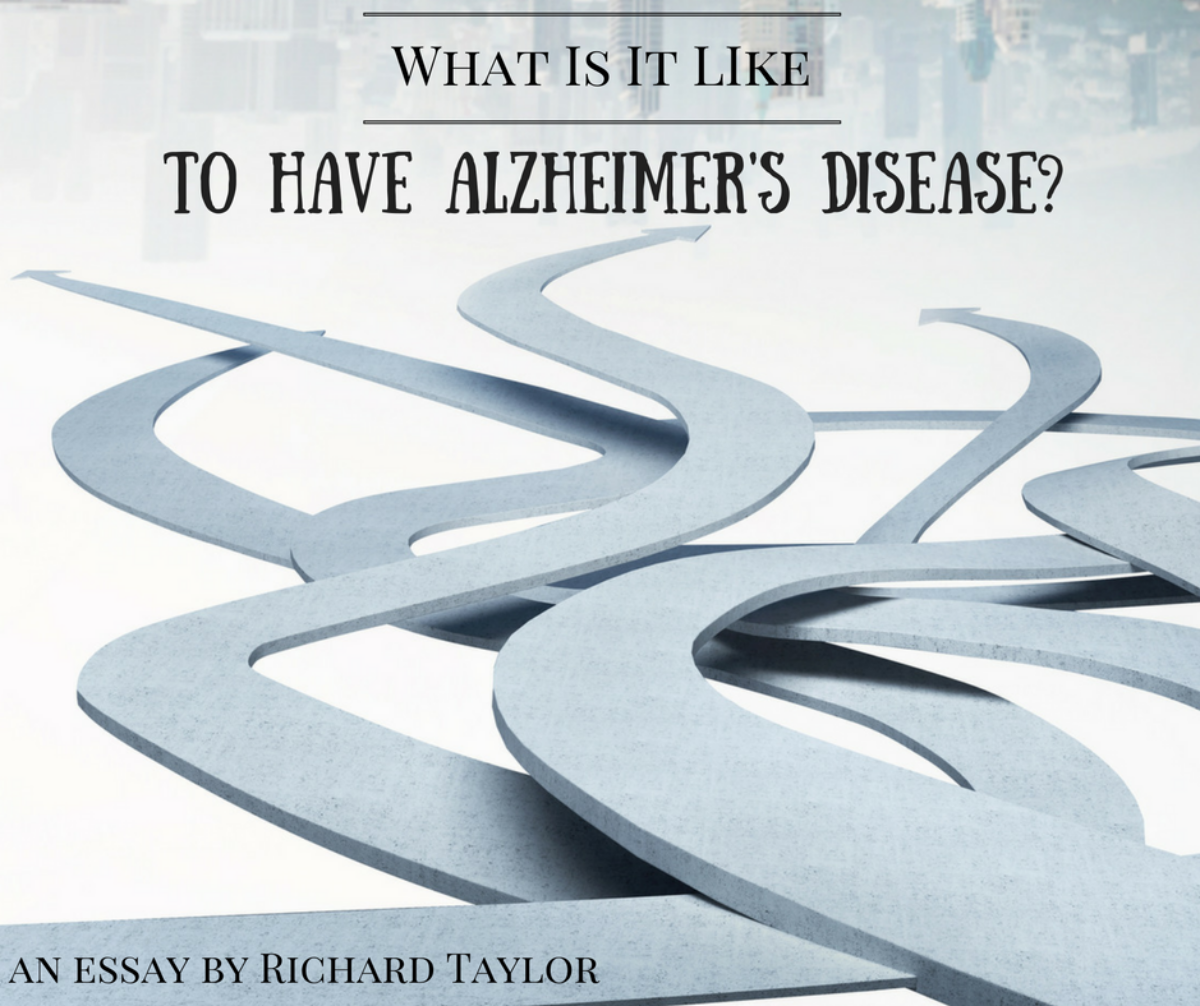
What Is It Like to Have Alzheimer’s Disease?

What is it like to drive your car from Houston to Anchorage? The answer depends on many things: the type of care you will drive, the age of the car, how well you maintained it, where you are in your trip, if others are helping you with the drive, if you have accepted the fact you must drive to Anchorage, whether or not you are afraid of arriving in Anchorage.
What is it like to have Alzheimer’s?
This, too, depends on many things: Do you have an existing group of individuals who are committed to your well-being? Are you a proactive or a reactive person when it comes to dealing with doctors, your health insurance company, and yourself? Where do you live: Houston, Texas, or Houston, Nigeria? Do you have insurance? Especially long-term care insurance? Does your culture and economic class encourage and promote younger generations taking responsibility and care of their family’s older generations? There are dozens of important factors outside of yourself that will directly and significantly influence you and your inner experiences with the disease.
After meeting, speaking, and corresponding with hundreds of people who have Alzheimer’s, I am convinced there is no universal answer to the question, “What is it like to have Alzheimer’s?”
Since the disease process unpredictably and seemingly randomly destroys various cognitive processes and undermines the basis of most all understanding and memory, each person has a unique and personal way of dealing with the rate, the degree, and the various components of the syndromes we attribute to Alzheimer’s disease. Neurologists who tell us they understand the disease because they see 4 or 40, or 400, individuals with Alzheimer’s does not mean they understand me or you. Just as there really is no single “average” person, there is no meaningful “average” Alzheimer’s disease experience.
I was diagnosed with dementia of the Alzheimer’s type two years before I wrote this piece. I imagine, maybe hoped, that some day I would wake up and a heavy velvet curtain would have fallen during the night. I would wake up to a world where I could see shapes but not enough details to know what or who they were, sort of like Plato’s flickering shadows on the wall produced by the fire on the cave floor.
Instead, right now, I feel as if I am sitting in my grandmother’s living room, looking at the world through her lace curtains. From time to time, a gentle wind blows the curtains and changes the patterns through which I see the world. There are large knots in the curtains and I cannot see through them. There is a web of lace connecting the knots to each other, around which I can sometimes see. However, this entire filter keeps shifting unpredictably in the wind. Sometimes I am clear in my vision and memory, sometimes I am disconnected but aware of memories, and other times I am completely unaware of what lies on the other side of the knots. As the wind blows, it is increasingly frustrating to understand all that is going on around me, because access to the pieces and remembering what they mean keeps flickering on and off, on and off.
Thanks in large part to my family caregivers, I am still functioning in the non-Alzheimer’s world. I drive, I learn (although I seem to forget much of what I learn), I teach, I love, I mostly understand—but not all the time, and not always the way others do. It is a constant effort to look around the lacy webs and to have put effort into understanding and doing things that came naturally but a few months ago (cooking, reading, driving to a new store, remembering the recent past). Some activities hide beyond the knots and rarely have clarity (arithmetic, reading a watch, remembering what I just read). It is not a lot of fun, but I can still do it!
Does the disease increasingly dominate my life, or has the disease insidiously and largely unconsciously become a part of my life?
Does the chicken come first, who am I?
Does the egg come first, Alzheimer’s disease?
Today, but not yesterday, I firmly believe: Individuals have a cold, have cancer, have the measles. Alzheimer’s has the individual. Ask me again tomorrow!
I am trying to be rational and realistic, using tools that are rusting and increasingly out of sync with each other. In my writings you will feel me leaning one way in one paragraph (I am in a war with this disease and I will go down fighting. This is an opportunity for me to grow in ways few people have an opportunity to experience), or another way (I’m mad, I’m sad, and I feel sorry for myself. Why won’t others join my self-pity party?).
My writings don’t offer answers, just my own observations from my own increasingly unsure perspective.
This essay was adapted from Alzheimer’s From the Inside Out, a book of essays by Richard Taylor, Ph.D. Copyright © 2007 by Health Professions Press, Inc. All rights reserved.
Read the book!
Alzheimer’s from the Inside Out
By Richard Taylor, Ph.D.
Copyright © 20017 by Health Professions Press, Inc.
As a former psychologist diagnosed with Alzheimer’s, expert Richard Taylor provides unique insights on experiencing and coping with Alzheimer’s disease, through these short and poignant essays.

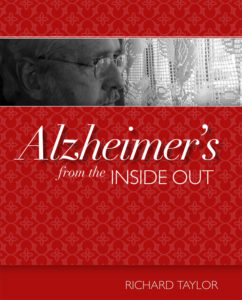
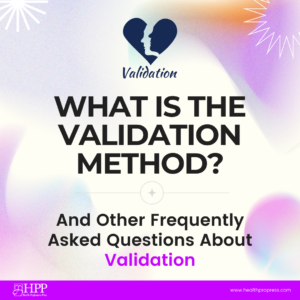
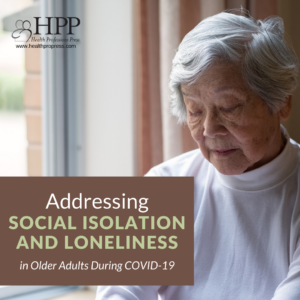
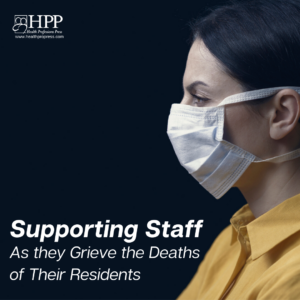
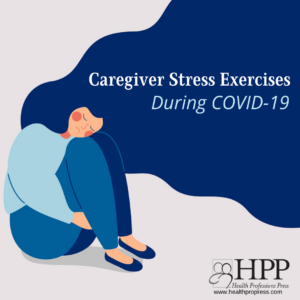
Add comment